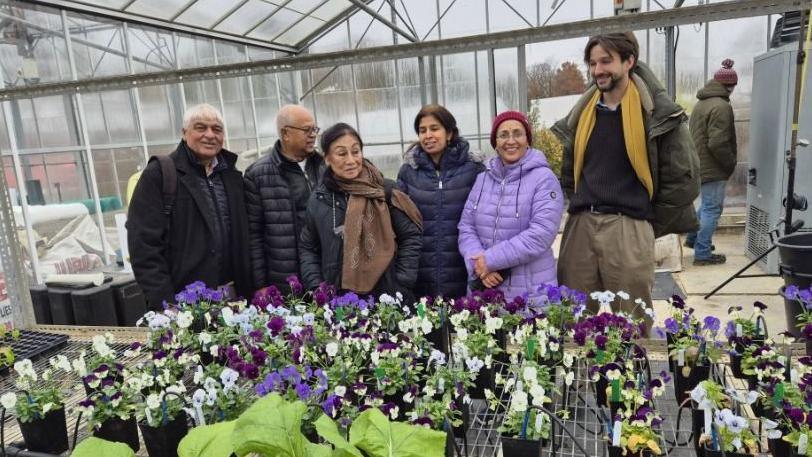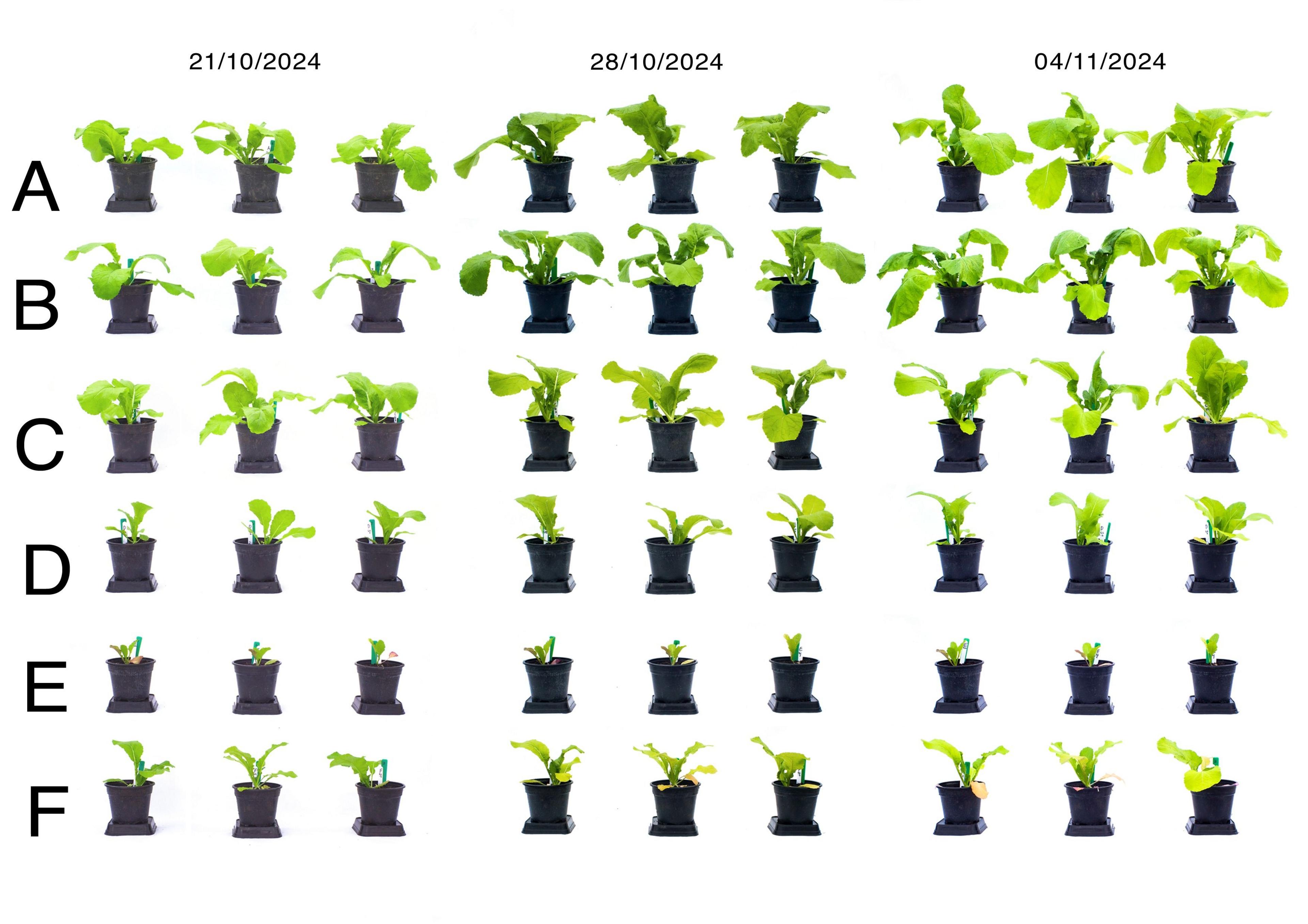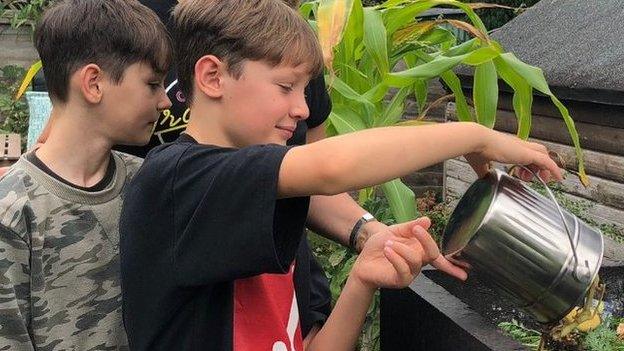Nepalese gardeners' compost outshines shop-bought

Gardeners from Reading's Nepalese community took part in the study
- Published
Gardeners from a town's Nepalese community have been taking part in a study into the quality of their homemade compost.
Scientists from the University of Reading, in Berkshire, found that mustard plants grown in composts, created from kitchen and garden waste, grew better than those in shop-bought alternatives.
Dr Deepti Angra, from the university's department of crop science, said it showed that homemade composts can be a better medium to "supercharge plant growth".
The researchers plan to analyse the nutritional content of the mature plants to determine whether the use of homemade compost has any effect on health when eaten.

Mustard leaves were grown in different composts
The research project involved the Integrated Research Development Centre (IRDC), which works with underrepresented communities in Reading, with a particular focus on the Nepalese community.
The initial trial saw mustard leaves - commonly grown and eaten by the Nepalese community - grown both in glasshouses and outdoors.
It found that plants grown in the homemade composts developed more rapidly, produced larger flowers and leaves, and exhibited stronger root systems.
Dr Angra said the study confirmed "what many gardeners have long suspected".
"The nutrient composition analysis showed our community-made compost was at least comparable, if not better than store-bought options, as it exhibits higher concentrations of micronutrients," she said.
"This ensures soil enrichment, which better supports the growing plants."
Through the project, community members learned to create two types of compost - one from wooden chips and garden waste, the other from kitchen waste, with both showing "excellent growing capabilities".
Krishna Neupane, IRDC chair said: "This research has empowered our Nepalese community group to be personally involved in their own waste management and food production.
"The scientific evidence supporting our homemade compost practices gives confidence to households wanting to make more sustainable, more affordable choices."
Get in touch
Do you have a story BBC Berkshire should cover?
You can follow BBC Berkshire on Facebook, external, X (Twitter), external, or Instagram, external.
Related topics
See also
- Published28 August 2021
